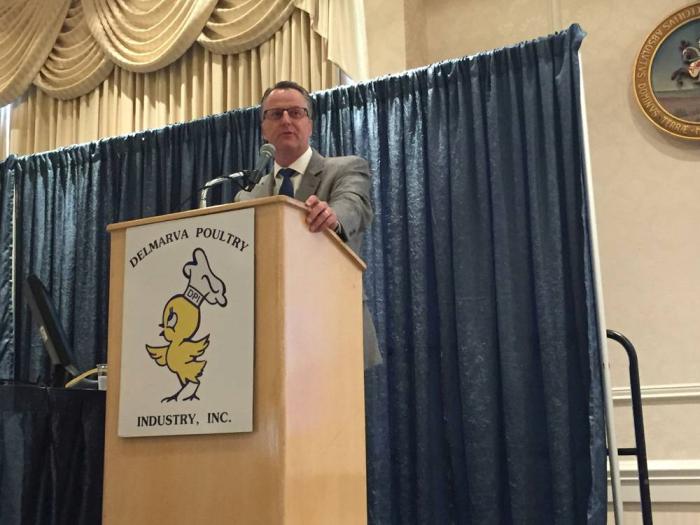The advent of digital and social media has consumer pressure and activism largely influencing views on animal agriculture as people crowdsource information from family, friends and other non-experts, making it critical for the poultry industry to identify the groups and people with whom they need to engage. Arnot suggested that female veterinarians, ideally also mothers, are the industry’s most effective channel for conveying its message.
But, facts are not what those consumers want in this messaging – they want to know that poultry companies share their values in seeking safe food for their families. In fact, according to Arnot, shared values are three to five times more important to building consumer trust than sharing facts. Consumers want to know poultry companies are ethically grounded, so companies must find more effective ways to demonstrate compassion, responsibility, fairness and truth.
“Our historical response has been science says we can, but society will tell us if we should,” Arnot said.

Charlie Arnot
Poultry companies have to understand that they must address this “should” question by engaging consumers. If not, efforts to educate the public will be unsuccessful.
“Consumers want information from academics, but they don’t want academic information,” he said.
Instead of falling back on science, Arnot advised the poultry industry to shift its focus to asking how it can be a resource for consumers seeking safe, quality products. For example, the use of antibiotics in poultry production is seen by many consumers as contributing to resistance in humans; instead, companies need to engage with consumers in a way that communicates that antibiotics help to keep healthy food affordable for them, which is a top concern according to Arnot.
To increase transparency and gain consumer trust, Arnot offered three key takeaways:
1. Begin public engagement using shared values
2. Find ways to open the digital door to today’s poultry industry
3. Commit to engaging early, often and consistently
The Delmarva Poultry Industry 2015 National Meeting on Poultry Health, Processing and Live Production was held October 13-14 in Ocean City, Maryland.

No comments:
Post a Comment